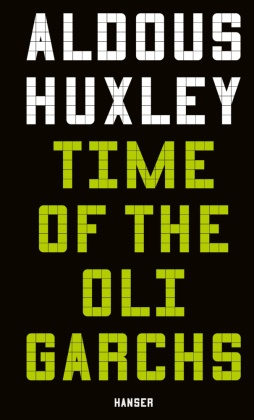En savoir plus
As early as 1946 and with uncanny clarity, Aldous Huxley foreshadowed our present moment where technological progress has centralized political power in the hands of the few. In times of social upheaval, nationalism and geopolitical power games thrive, while democracy and solidarity come under attack. Aldous Huxley, the master of dystopian literature, describes the dawning age of a tech-oligarchy - a world in which boy gangsters run our governments and where our freedom is put at risk by the law of the strongest. Huxley's prophetic intervention was buried for 80 years. Today, it cuts right to the heart of what we are facing in the 21st century.
A propos de l'auteur
Aldous Huxley, born in 1894, was a British author and philosopher and is widely considered one of the preeminent writers of the modern period. The central themes of his work include the critical examination of societal systems and their norms and constraints, capitalism and consumerism, and the consequences of technological progress. His most famous novel, Brave New World, is a classic of dystopian literature and science fiction. Huxley died in Los Angeles in 1963.
Résumé
As early as 1946 and with uncanny clarity, Aldous Huxley foreshadowed our present moment where technological progress has centralized political power in the hands of the few. In times of social upheaval, nationalism and geopolitical power games thrive, while democracy and solidarity come under attack. Aldous Huxley, the master of dystopian literature, describes the dawning age of a tech-oligarchy – a world in which boy gangsters run our governments and where our freedom is put at risk by the law of the strongest. Huxley’s prophetic intervention was buried for 80 years. Today, it cuts right to the heart of what we are facing in the 21st century.

